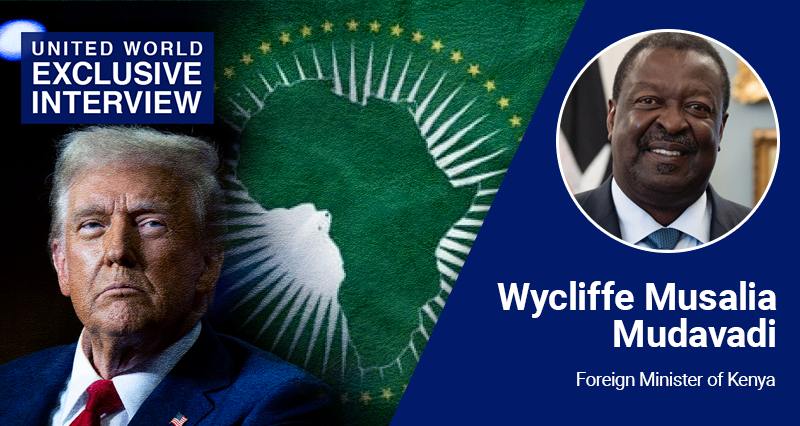The US preferential system for imports from Africa, AGOA, is likely to end this year, says the minister.
The US preferential system for imports from Africa, AGOA, is likely to end this year, says the minister.
By Yunus Soner, Antalya / Türkiye
African countries are amongst those most affected by US President Donald Trump’s tariff policies. Some of them, like Botswana and Lesotho, were targeted with the highest tariffs, while others suffer great damage, because trade with the US makes a great part of their international commerce.
On the continent’s response, we asked Wycliffe Musalia Mudavadi, Kenya’s Prime Cabinet Secretary and Secretary for Foreign and Diaspora Affairs, hence, the country’s foreign minister.
The minister has been a guest and speaker at the Antalya Diplomacy Forum.
I would like to ask you very much about the US tariff policy which has been put forward recently by President Trump?
Okay, well, it’s something that needs a lot of reflection and a lot of consultation so that we can collectively bring moderation and stability to global trade. And I think what is important is from an African perspective: We intend to have a forum under the auspices of the African Union so that we can have some common approach to dealing with the emerging issues from the tariff challenges. Because Africa had the AGOA mechanism, which would allow it to export agricultural products, textiles from Africa to the American market. This is likely to come to an end, perhaps in September this year.
So, from an African perspective, we are consulting so that we can have an approach that can give us the best advantage possible as we engage with the US.
The other area that I would say that is significant is to really look forward to the WTO to coalesce and bring the global community together. Because one of the challenges is that there has been a delay in renewing the operations of the appeals board within the WTO.
Because I think since about 2011 or so, the appeals board has not been functioning properly. Now this is usually the forum where countries when there are challenges on matters of trade there’s an arbitration mechanism. Now, this arbitration mechanism has not been as active as it should be.
So, from an African perspective, we also believe that it is important that the arbitration mechanism within the WTO framework is activated to help in balancing the challenges around the trade.
So, is this like, do you consider this tariff policy as it is applied also kind of formulated smoothly an attack on multilateralism as it is done?
Well, I think what it means is that it may call for a rebuke of multilateralism and the approach of multilateralism, but it is significant that we also recognize that multilateral institutions are important for purposes of bringing diverse concerns to the table for proper and amicable resolution.
I think what it calls for is that going into the future, the bureaucracies around multilateralism need to be rethought and relooked at so that multilateral institutions can be matched faster in responding to global concerns.

















Leave a Reply